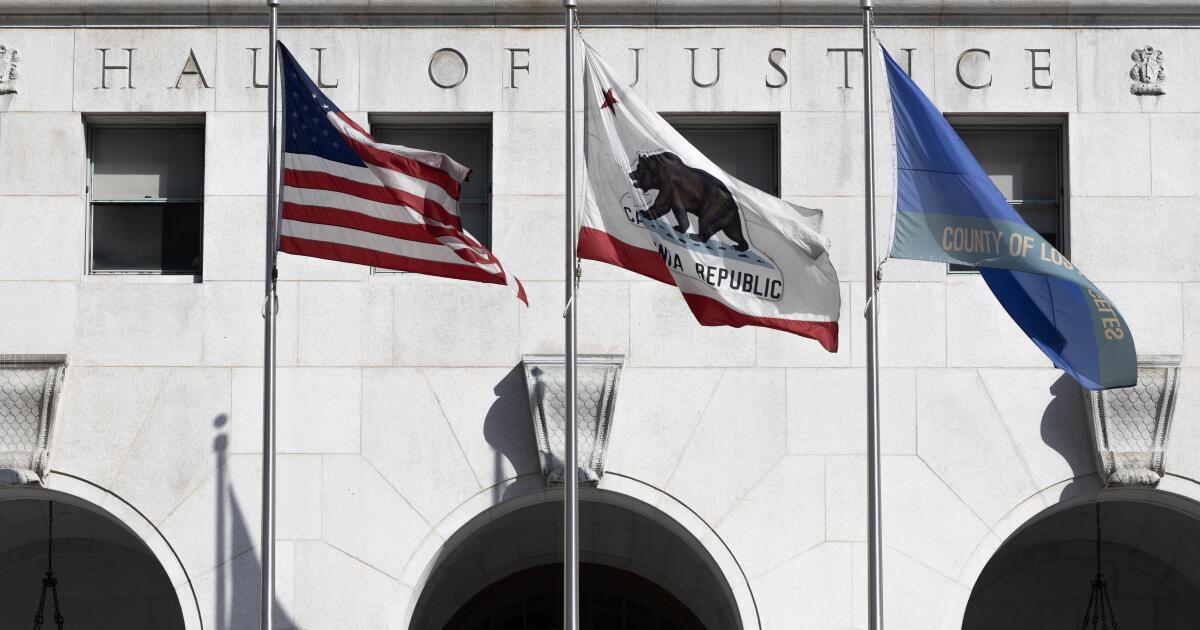The allegations at the center of the case against [D.A. advisor] Teran date to 2018, when she worked as a constitutional policing advisor for then-Sheriff Jim McDonnell. Her usual duties included accessing confidential deputy records and internal affairs investigations.
A few years after leaving the Sheriff’s Department, Teran joined the district attorney’s office. While there, in April 2021, she sent 33 names and a few dozen related court records to a subordinate to evaluate for possible inclusion in either of two internal databases prosecutors use to track officers with histories of dishonesty and other misconduct.
…
The state Department of Justice alleged several of the names Teran sent to her subordinate to consider including in D.A. databases were those of deputies whose files she had accessed while working at the Sheriff’s Department years earlier.
However, testimony during the preliminary hearing last month showed she did not download the information from the Sheriff’s Department personnel file system. In most cases she learned of the alleged misconduct when co-workers emailed her copies of court records from lawsuits filed by deputies hoping to overturn the department’s discipline against them.
But after searching news articles and public records requests, state investigators said they found that 11 of the names hadn’t been mentioned in public records or major media outlets. Thus, prosecutors said Teran wouldn’t have been able to identify the deputies, or know to look for their court records, were it not for her special access while working at the Sheriff’s Department.
…
But the redacted documents already made public contain distinctive notes and markings, as well as identifying dates and apparent redaction oversights, which make it possible to match them to public court records containing the deputies’ names.
So, if I understand this correctly, this woman is being sued by the state if California for making a list of bad cops using knowledge that she may have obtained prior to her working for the DA’s office? Isn’t that fucking special. What are they going to do about the bad cops?
Close, but she’s not being sued, she’s actually being criminally prosecuted on six felony charges
Isn’t that fucking special.
In-fucking-deed it is
What are they going to do about the bad cops?
They all already got a variety of punishments (generally not harsh enough imo, but their conduct runs all the way from rigging an intramural athletic competition to driving drunk with a loaded firearm, so it’s a bit of a complicated picture and worth reading the full article for those details). She was looking them up after the fact so the prosecutor’s office she works for now (Los Angeles county) didn’t call on them to testify in court (or, if they had to call them for whatever reason, so her office knew to let defense attorneys know about this as theoretically required under the Brady opinion (but exactly what things are Brady material and what can be ignored is something attorneys will be fighting over until the end of time and something I believe LA county and the CA attorney general have argued over in recent history)).
In a statement, Steve Johnson, the president of the Los Angeles County Professional Peace Officers Association, vehemently disagreed with release of personnel information which he described as “stolen,” even though they were court records, and said that it would endanger deputies, families and peace officers who serve the community.
We’ll be murdered if the public finds out about our misbehavior!
On one exhibit, state prosecutors left public the department identification numbers corresponding to Deputy Does 7, 8 and 9. On another, they left public a connected civil case number. In at least four cases, handwritten margin notes and signatures made it possible to match redacted exhibits to the public versions of the same documents already in L.A. Superior Court records.
It almost feels like someone on the inside strategically left hints for this to be uncovered, but it’s probably just incompetence.
Sure seems like cops are able to get their jobs back in a lot of instances. That wouldn’t work with my employer. Kinda feels out of balance, like they aren’t truly accountable, dontcha think?



